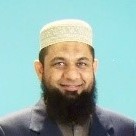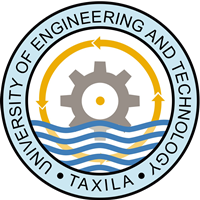Team

Dr. Muhammad Haroon Yousaf (Principal Investigator)
Associate Professor, Computer Engineering Dept. UET Taxila
Dr. Muhammad Haroon Yousaf is currently working as Associate Professor and Director postgraduate studies in the Department of Computer Engineering. He holds his Ph.D. in Computer Vision from UET Taxila. He is actively involved in computer vision research particularly in the areas of object detection, object recognition, scene understanding and action/activity recognition. He has an active research collaboration with Prof. Dr. Sergio A. Velastin (Professor of Applied Computer Vision) Queen Mary University of London and University of Carlos III Madrid, Spain. He has supervised 20+ M.Sc. research thesis, and 5 Ph.D. students are working under his supervision right now. He has published a number of papers in national and international conferences and journals. He is also working as Editor, reviewers and program committee member for various journals and conferences respectively. He is the recipient of HEC Best University Teacher Award for the year 2012-2013.

Dr. Mansoor Shaukat (Co-PI)
Director Robotics and Assistant Professor Electrical & Computer Engineering, Center for Advanced Studies in Engineering (CASE)
Dr. Mansoor Shaukat will head the Swarm Intelligence domain. He is currently the Director of Robotics at CASE and Vice President of Pakistan’s IEEE Robotics and Automation Society (RAS). He holds a PhD degree in Swarm Intelligence and Multi-Agent Robotic Systems from National University of Singapore (NUS). He has an extensive experience of robot development spanned over a period of 14 years. His mentored teams have won over 57 national titles such as NERC, ABU-Robocon, P@SHA Awards, NASCON and COMPPEC, etc. Internationally, his supervised team won the Asia’s largest and world’s second largest underwater robotics competition, i.e., Singapore AUV Challenge, in 2017. He has multiple international publications in the field of Swarm Intelligence and Multi-Agent Systems including top tier conferences and journals such as ICRA, IEEE Oceans and Adaptive Behavior. He is also a recipient of President’s Gold Medal for his exemplary academic performance during his master’s degree at NUST.

Dr. Danish Nisar (Co-PI)
Associate Professor, Electrical & Computer Engineering, Center for Advanced Studies in Engineering (CASE)
Dr. Muhammad Danish Nisar will head the Decentralized Communications domain He is currently the head of Wireless Signal Processing (WSP) group at CASE, and Project Technical Lead at CARE within the Software Defined Radio (SDR) group, since 2015. He holds a PhD degree in Electrical and Communication Engineering from Technical University of Munich (TUM), Germany. He has over 8 years of industrial research experience in Germany (including 3 years at Nokia Siemens Networks, 2 years at Nomor Research, 2.5 years at Intel). Earlier, he completed his bachelors in Electrical Engineering from the National University of Science and Technology (NUST), Pakistan in 2004, and his Masters in Communication Engineering from TUM, Germany in 2006, both with honors. Dr. Nisar has proven technical excellence in the field of wireless communications and networking, with over 30 international research publications (including 8 journal publications) with over 200 citations and 3 international patents.

Dr. Amanullah Yasin (Co-PI)
Assistant Professor, Computer Science, Center for Advanced Studies in Engineering (CASE)
Dr. Amanullah Yasin will be the Co-PI from CASE. He holds a PhD degree in Data Science and Artificial Intelligence, and Master in Data Science from University of Nantes, France. His current research interests are Big Data analytics, Machine Learning and Bayesian Networks to solve social problems of Pakistan. He has supervised more than 14 M.S. research thesis, and 2 Ph.D. students are working under his supervision right now. He has multiple international publications in the same field. He is also working as reviewer and program committee member for various journals and conferences respectively.
